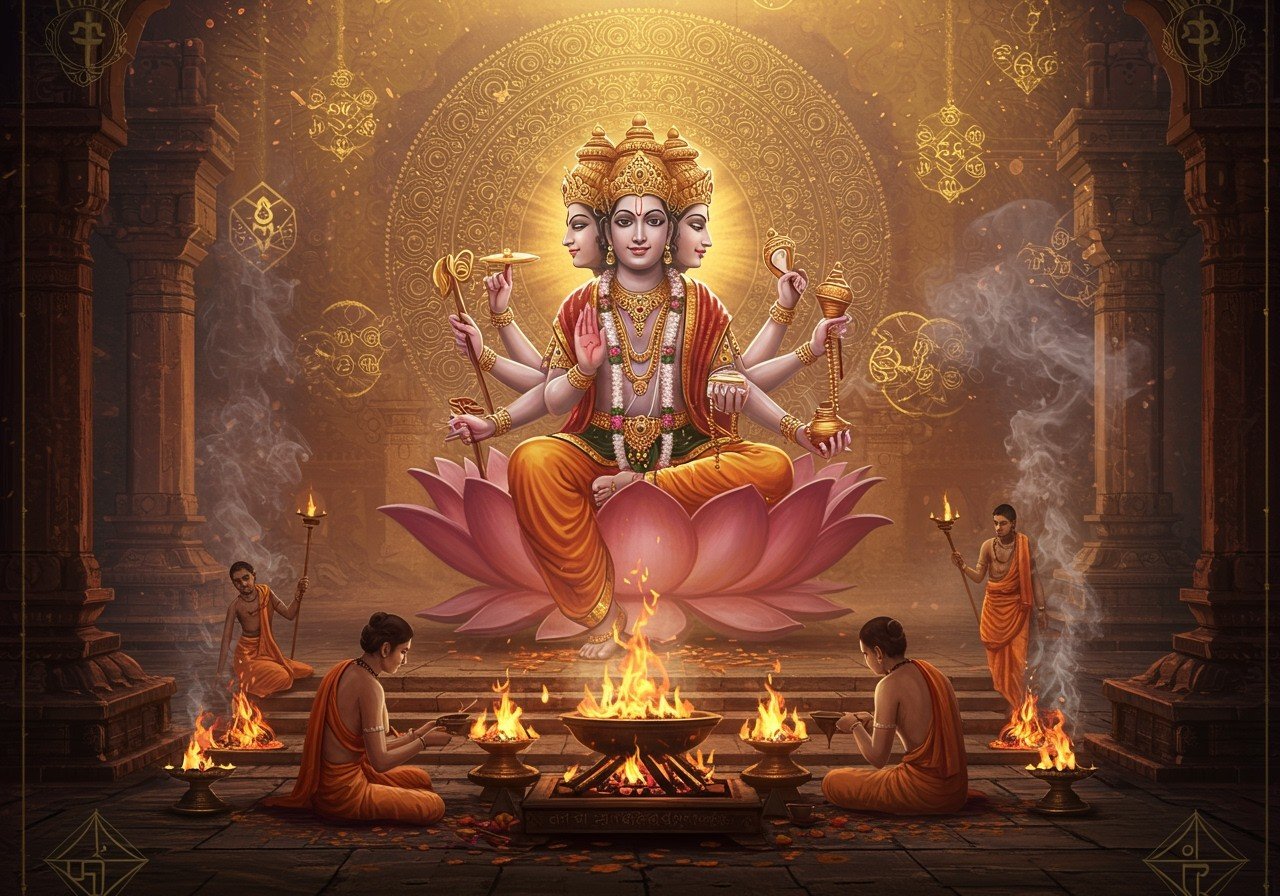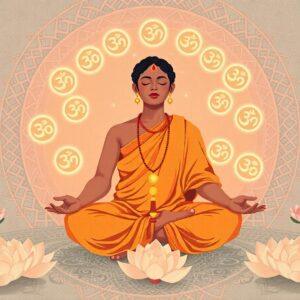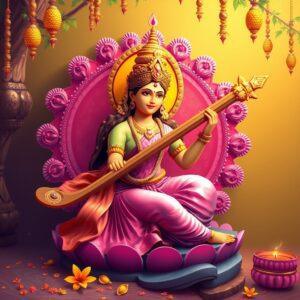Exploring the Vedic Heritage: Rituals, Deities, and Legacy

The Vedic religion, originating from ancient Indo-European-speaking peoples who entered India around 1500 BCE, has profoundly shaped India’s spiritual and cultural landscape. These sacred traditions, intricate rituals, and pantheon of deities continue to influence contemporary Indian society. Understanding this legacy is key to preserving it. At poojn.in, we understand the significance of this heritage.
Historical Vedic Religion
Understanding the Roots
The Vedic religion stands as one of the world’s oldest spiritual traditions. The Vedas, composed between 1500 and 500 BCE, serve as the foundational texts of Hinduism. The four Vedas—Rigveda, Samaveda, Yajurveda, and Atharvaveda—each focus on hymns, melodies, rituals, and spells, respectively. Rishis (sages) composed and transmitted these hymns orally through generations. The societal structure during the Vedic period included the varna system (social classes). Yajnas (sacrificial rituals) were important for maintaining cosmic order (Rta). The transition from early to later Vedic periods saw the composition of the Brahmanas, Aranyakas, and Upanishads.
Vedic Rituals
Intricate and Symbolic Practices
Vedic rituals were central to religious and social life. Yajnas, elaborate sacrificial rituals involving offerings to deities through fire, held great significance. Priests, known as purohits, played a crucial role in conducting these rituals to connect with the divine and maintain cosmic order. The Brahmanas, a category of Vedic scriptures, provide detailed commentaries on these rituals and ceremonies. Various types of yajnas existed, including:
- Agnihotra: The daily fire ritual performed at sunrise and sunset, symbolizing the eternal cycle of life and death. It involves offering milk and grains into the sacred fire.
- Soma Yajna: A complex ritual centered around the Soma plant, believed to have intoxicating and spiritual properties. This ritual was performed for kings and involved elaborate preparations and chanting.
- Ashvamedha: The horse sacrifice, a grand royal ritual performed to assert power and ensure prosperity. It involved the sacrifice of a horse, followed by elaborate ceremonies and symbolic interpretations.
These rituals had specific purposes. The hotri (priest) and other officiating priests performed these rituals with precision. Offerings like ghee, grains, and soma had symbolic meanings and spiritual benefits. Mantras, chanted hymns from the Vedas, invoked deities and sanctified rituals. Specific ceremonies like Upanayana (sacred thread ceremony) marked societal rites of passage. These ancient rituals have evolved but are still practiced in contemporary Hinduism.
Looking to perform Vedic rituals at home? Poojn.in offers a wide range of puja kits and samagri to help you conduct these rituals with authenticity and reverence.
Vedic Deities
Exploring the Pantheon
The Vedic pantheon is rich with deities representing natural and spiritual aspects. Key deities include:
- Indra: King of gods, god of thunder and rain, celebrated for his strength and bravery in battles against demons.
- Agni: Fire god, divine messenger between humans and gods, crucial in yajnas and considered a bridge to the divine realm. Agni is often invoked for purification and guidance.
- Soma: Deity and ritual drink, associated with immortality and ecstatic experiences. The Soma plant was considered sacred and its juice was used in rituals.
- Varuna: God of cosmic order and moral authority, upholding justice and maintaining the balance of the universe. Varuna is often associated with the sky and the waters.
- Surya: Sun god, representing light, warmth, and life-giving energy. Surya is worshipped for health and vitality.
- Vayu: Wind god, symbolizing breath, life force, and the power of nature. Vayu is associated with speed and movement.
- Ushas: Goddess of dawn, representing new beginnings, hope, and the beauty of nature’s awakening. Ushas is invoked for blessings and auspicious starts.
Deepen your understanding of these deities with Poojn.in’s comprehensive guide to Hindu Gods and Goddesses. Explore their stories, significance, and rituals associated with their worship.
Preserving the Vedic Legacy
The Vedic heritage is an integral part of India’s spiritual and cultural identity. The rituals, deities, and teachings from the Vedas have shaped our understanding of our connection to the divine and the cosmos. By learning about these traditions, we honor the wisdom of our ancestors and keep their legacy alive.
In today’s fast-paced world, preserving these ancient practices requires conscious effort. Incorporating them into our daily lives, celebrating festivals, and educating younger generations helps sustain the rich Vedic heritage. Embracing these traditions with respect and devotion allows us to stay connected to our roots while navigating modern life. Every small effort to uphold these practices contributes to preserving the timeless legacy of the Vedic heritage.
Enhance your connection with the Vedic heritage by exploring Poojn.in’s blog post on the practical applications of Vedic wisdom in modern life. Discover how these ancient teachings can provide guidance and meaning in our contemporary world.


